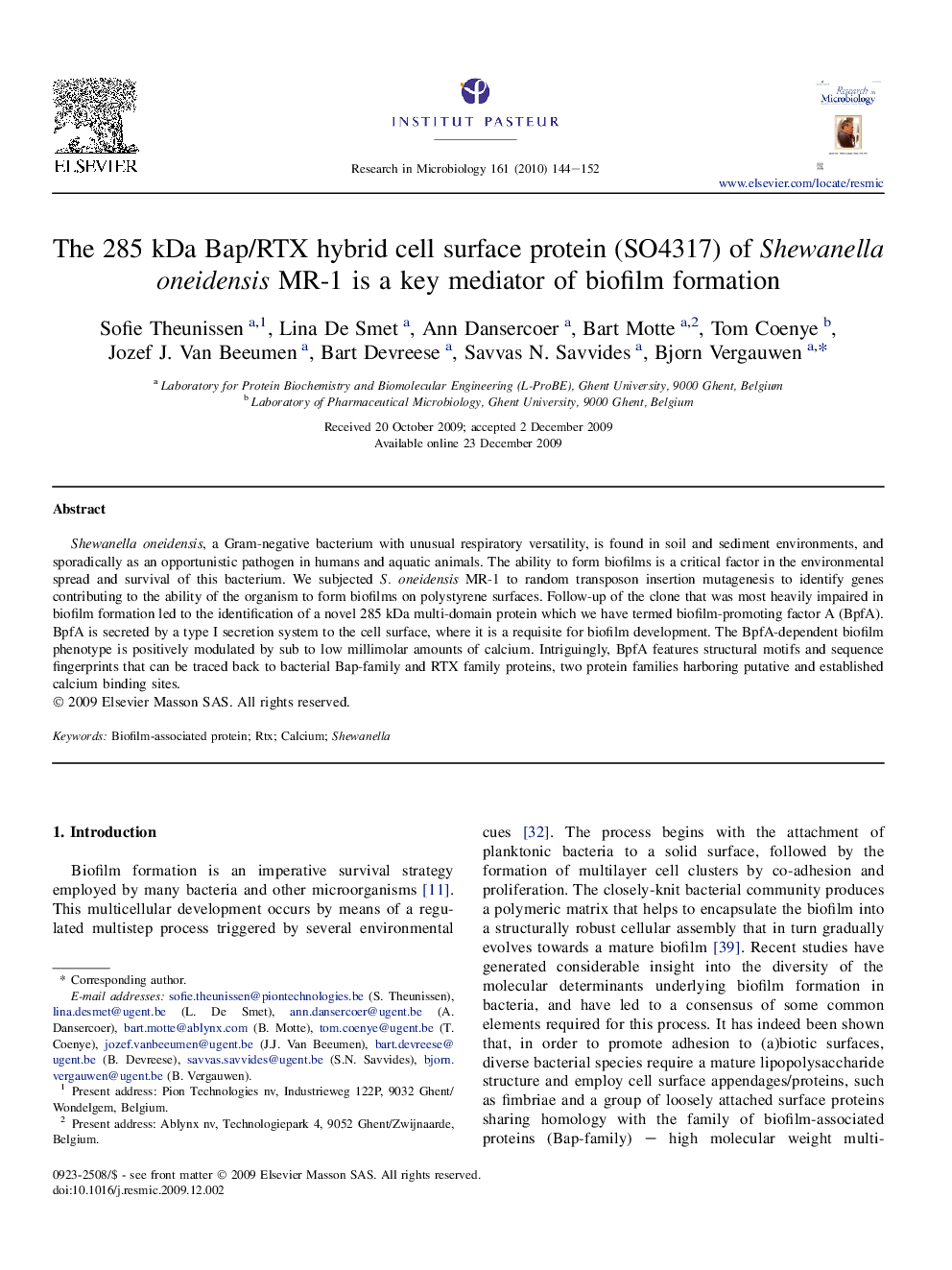| کد مقاله | کد نشریه | سال انتشار | مقاله انگلیسی | نسخه تمام متن |
|---|---|---|---|---|
| 4358955 | 1300472 | 2010 | 9 صفحه PDF | دانلود رایگان |

Shewanella oneidensis, a Gram-negative bacterium with unusual respiratory versatility, is found in soil and sediment environments, and sporadically as an opportunistic pathogen in humans and aquatic animals. The ability to form biofilms is a critical factor in the environmental spread and survival of this bacterium. We subjected S. oneidensis MR-1 to random transposon insertion mutagenesis to identify genes contributing to the ability of the organism to form biofilms on polystyrene surfaces. Follow-up of the clone that was most heavily impaired in biofilm formation led to the identification of a novel 285 kDa multi-domain protein which we have termed biofilm-promoting factor A (BpfA). BpfA is secreted by a type I secretion system to the cell surface, where it is a requisite for biofilm development. The BpfA-dependent biofilm phenotype is positively modulated by sub to low millimolar amounts of calcium. Intriguingly, BpfA features structural motifs and sequence fingerprints that can be traced back to bacterial Bap-family and RTX family proteins, two protein families harboring putative and established calcium binding sites.
Journal: Research in Microbiology - Volume 161, Issue 2, March 2010, Pages 144–152